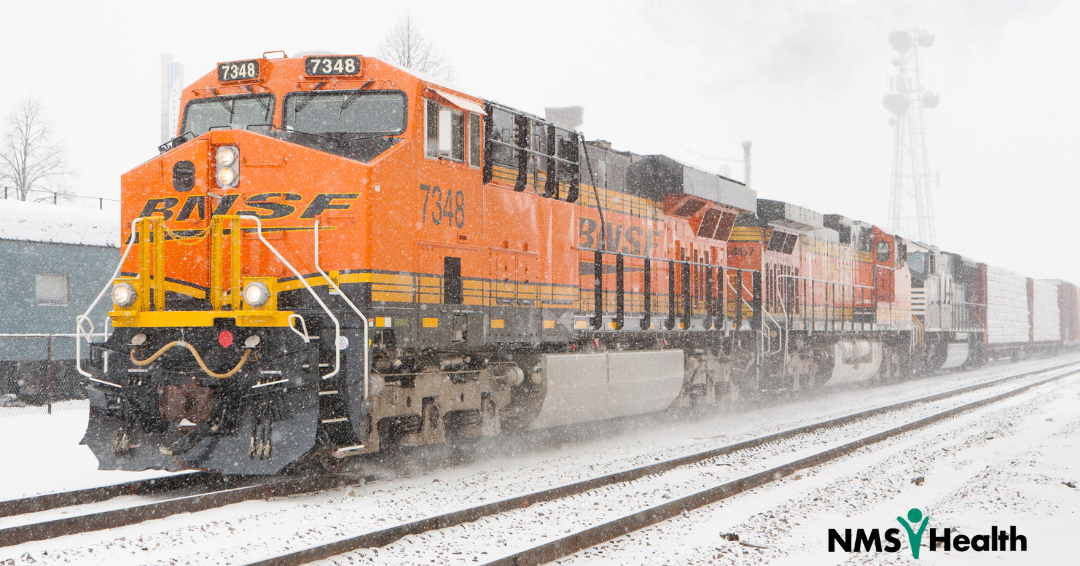Winter has begun and the U.S. rail industry is gearing up to face the unique challenges posed by severe weather conditions. Recent years have witnessed a surge in weather-induced rail incidents, with over half leading to main-track derailments.
Since 2021, severe weather has influenced 123 rail incidents, with a majority resulting in main-track derailments according to the Federal Railroad Administration. The escalating impacts of climate change further threaten the safety, efficiency, equity, and sustainability of railway operations.
Strategic Roadmap for Industry Readiness
The Federal Railroad Administration (FRA) underscored its proactive approach with a safety advisory issued on November 20, 2023. This advisory not only emphasizes immediate actions to enhance resilience against extreme weather but also aligns with the FRA’s overarching vision: championing initiatives where addressing climate change remains central:
- Training and Communication: Enhance training programs focusing on winter-specific protocols. Additionally, establish strong communication channels to execute weather-related action plans swiftly.
- Technological Integration: Adopt advanced weather-forecasting technologies into operational systems, as advised by the FRA. Railroads should evaluate the integration of weather policies into dispatch operations and explore their incorporation into positive train control systems.
- Infrastructure Integrity: Prioritize track maintenance and alignment. Conduct regular inspections and implement preemptive measures to address vulnerabilities posed by snow, ice, and temperature fluctuations.
- Evaluating and Auditing: Review and refine existing weather action plans, emphasizing proactive planning, maintenance, and communication strategies. Develop an auditing program for weather alert systems, ensuring regular testing aligns with current action plans.
- Standard Operating Thresholds: Establishing standardized operating thresholds is indispensable. Such benchmarks will empower railroads to navigate through severe weather events with calibrated precision, minimizing potential risks.
- Collaborative Approaches: Railroads must collaboratively sculpt best practices, harmonizing weather forecasting technologies, predictive models, and action plans. Railroads should share best practices, leverage weather insights, and consider optimizing capabilities from organizations like the National Oceanic and Atmospheric Administration (NOAA) and the United States Geological Survey (USGS) to enhance predictive and monitoring strategies.
While these measures aim to bolster immediate preparedness, the advisory’s recommendations must be contextualized within the broader challenges posed by climate change. Subsequently, plans necessitate a more comprehensive and integrated approach to risk management and infrastructure planning.
Climate Change Challenges
The implications of climate change extend beyond the immediate safety concerns highlighted by recent rail incidents. Climate variability, extreme weather events, and long-term environmental changes pose systemic risks to rail infrastructure, operations, and supply chains. From infrastructure degradation due to temperature fluctuations to disruptions caused by flooding and other weather-related phenomena, the industry must grapple with multifaceted challenges that require adaptive strategies, investments, and collaborative efforts.
Comprehensive Action and Collaboration
As the U.S. rail sector prepares for winter and grapples with the growing impacts of climate change, the need for comprehensive action, collaboration, and strategic planning becomes increasingly evident. While the FRA’s recent safety advisory highlights key areas for industry focus, addressing the multifaceted challenges posed by severe weather and climate change will require a coordinated and sustained effort. This advisory, FRA’s sixth in 2023, reaffirms its dedication to rail safety. For stakeholders, adherence to these guidelines goes beyond meeting standards. It represents a unified effort to protect lives, assets, and operations from nature’s uncertainties.
Ready to elevate your workforce’s health? Partner with NMS Health for your occupational health screenings. With NMS Health, you are not just identifying and preventing future illness. You’re investing in a safer, healthier future for your team. Get started today!


